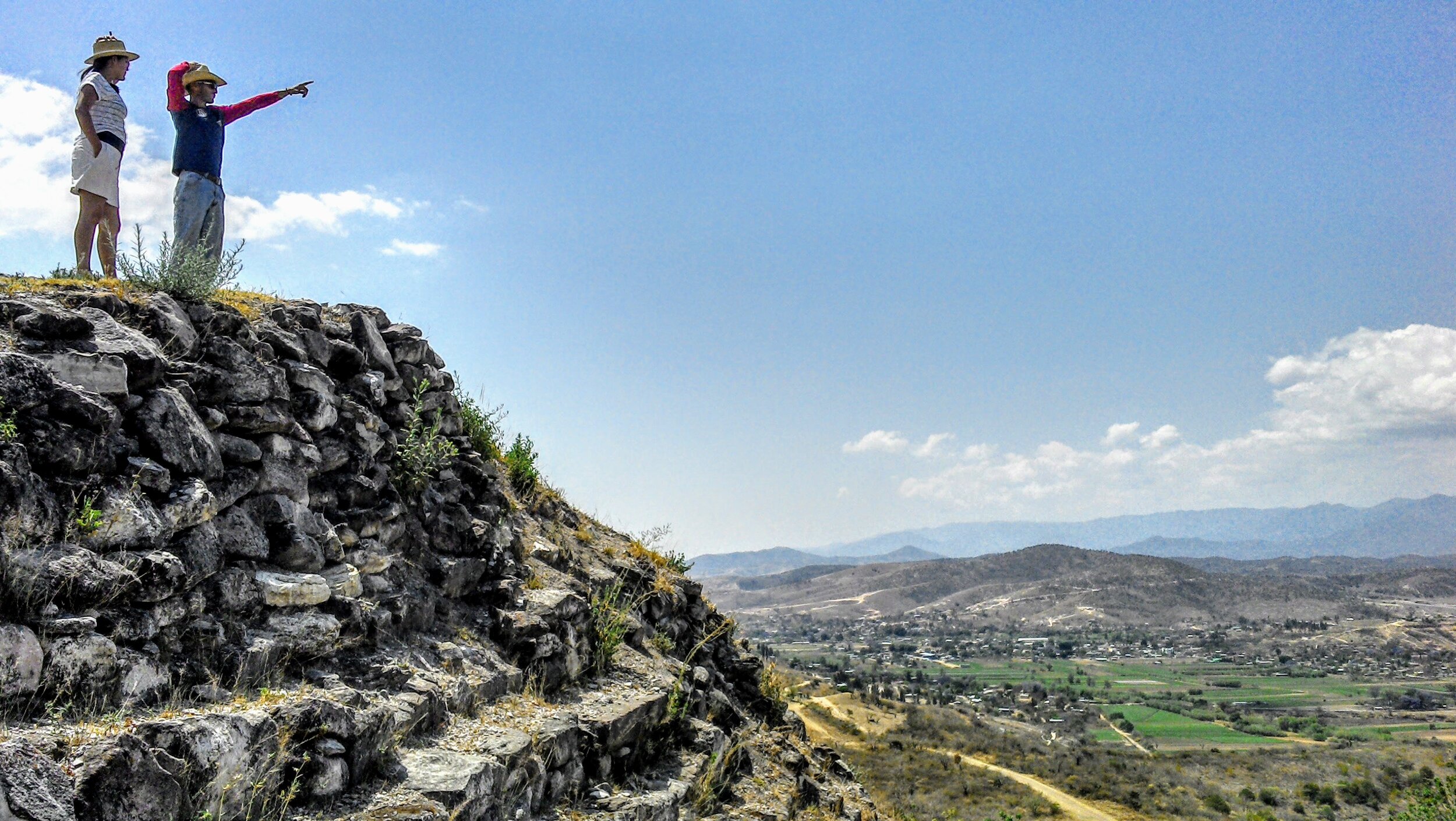Where we work
Santiago Suchilquitongo
Valle de Etla, Oaxaca
SANTIAGO SUCHILQUITONGO
Santiago Suchilquitongo is a municipality located in the Etla district of the Oaxacan Central Valley in the State of Oaxaca, Mexico. According to the last INEGI census in 2010, it consists of approximately 10,000 inhabitants but local authorities estimate the current number reaching around 12,000 people.
Agriculture represents one of the main economic development opportunities, since the region has ideal socio-environmental conditions for agricultural practices, in addition to having a geographical advantage with its proximity to markets in the state capital.
Various local actors and organizations, working to promote food security, have created a market for the cultivation and transformation of amaranth, being one of the main products sold in the municipality. However, options remain scarce in relation to new projects and jobs, especially for young people who migrate in search of better opportunities.
The directors of Tejiendo Alianzas, Richard Hanson and Sarahi Garcia, have worked in the community since 2014, first as representatives of a Mexican foundation and then as founders of TA. Since beginning activities in Suchilquitongo, they have promoted community organization, incubation of local projects and youth development. During this period, many local and external partnerships were created to broaden the impact of their efforts in the community, including the Suchilquitongo Community Development Association, Puente a la Salud Comunitaria (Bridge to Community Health), and the Central Valleys Amaranth Network.
Projects:
Santa Maria Ixcatlan
The Cañada and Mixteca Region, Oaxaca
Santa maria ixcatlan
Santa María Ixcatlán is part of the Teotitlán de Flores Magón district, in the Cañada region, near the border with the Mixteca Alta. Its land includes 44,000 hectares, many of them large treeless landscapes after years of grazing by goats and sheep, leaving little vegetation. The Ixcatlan area adjoins the Tehuacan-Cuicatlan Biosphere where you can find impressive biological diversity.
Around 550 inhabitants reside in the community, a low number due to the strong attraction of employment in other urban centers, both in Mexico and abroad. Historically, the population migrated and declined due to diseases, agrarian conflicts, and poor farming yields. Sadly, Ixcatec, the tonal language of the Ottoman language family, spoken only in this part of the world, is on the verge of extinction. Only two or three elderly residents still speak it and few understand it.
Despite La Cañada’s abundance of water and fruit, Ixcatlan is located above the major rivers in a dry climate with little rain during the year. The low productivity of the local lands leaves residents dependent on food imported from other urban centers.
However, certain plants proliferate in the area, such as various agaves and palm trees, creating economic opportunities and longstanding traditions. Anthropologists have called the Ixcatecos "the eternal weavers," primarily for the hats they have made by hand. Locally produced mezcal reflects an ancestral process, fermenting the hearts of the wild agave Papalometl in leather hides from bulls and cows, in addition to other steps strictly outlined in the tradition.
The directors of Tejiendo Alianzas, Richard Hanson and Sarahi Garcia, have worked in the community since 2014, first as representatives of a Mexican foundation and then as founders of TA. Since beginning their work in Ixcatlan, they have promoted community organization and project incubation, including the production and sale of palm craft and ancestral mezcal.
ProJects
San Dionisio Ocotepec
Central Valley, Oaxaca
San Dionisio Ocotepec
San Dionisio Ocotepec is located in the Tlacolula district, with around 11,000 inhabitants spread over 23 smaller townships. The name "San Dionisio" is used in honor of the Patron Saint "San Dionisio Aropajita" and "Ocotepec" in the Nahuatl language of Mexico means "hill of the ocotes" due to the abundance of this species of flora in the area. It is estimated that more than 90% of the inhabitants are speakers of the Zapotec indigenous language, which is learned in family homes instead of school. One can find various archaeological sites in the area but their restoration has not yet begun.
Lack of local employment has fueled migration, largely to California in the United States. However, both the US economy and its policies against Mexican migrants have led many to return to their hometown, presenting a significant challenge for residents and community authorities to re-integrate them into the social fabric, taking into account the complexity of the change in their identity after lived in American culture.
The economic activities in the town are based on agriculture, such as the cultivation of corn, beans, squash, avocado, tomato, and agave, with the production of mezcal as a great source of income. Local families produce and have registered brands of mezcal, even having begun to export or are in the process of obtaining their permits for it. The community is also known for its traditional embroidery, but few artisans remain that still know the technique. Many residents travel to the municipality of Santiago Matatlán, about 17 kilometers (10.5 miles) away, to work in the mezcal palenques or family households as domestic servants.
The directors of Tejiendo Alianzas, Richard Hanson and Sarahi Garcia, have worked in the community since 2017. Since the beginning of their activities in San Dionisio, they have focused on project incubation, brand development, sales and marketing strategies, as well as increased sales abroad. Tejiendo Alianzas has dedicated its time to collaborating with several local micro-companies, such as Ndavaa Calzado Artesanal, Laani Chocolate, and Mezcal Sinai.



